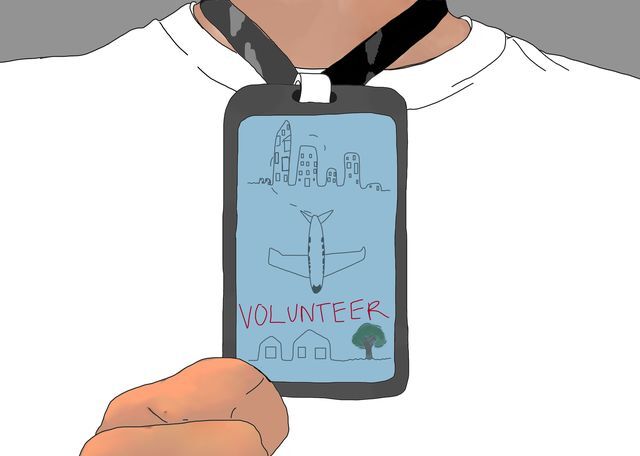A popular form of international travel for the last few years entails young Americans, usually high school and college students, traveling to nations in Latin America or Africa.
These trips are likely to help local communities build a school, church or hospital or just distribute aid. Volunteer tourism or “voluntourism” is the name of this type of travel.
While offering a seemingly more noble approach to globetrotting than backpacking Europe or soaking up on a beach, voluntourism is not without issues and requires a genuine reevaluation about who really benefits from the practice.
From a logistical standpoint, voluntourism simply does not sustain itself long enough to meet long-term goals. Volunteers who visit these communities for only one week only provide a sliver of the work needed to make the improvements permanent, such as building a school or helping with agriculture.
Such projects are usually local efforts in their inception anyway, with foreign volunteers merely assisting in its construction for a limited amount of time. It is not fair to say the installation is charity if most of the labor is done by locals.
The more insulting characteristic of voluntourism is the preservation of the white savior complex. It is easy for American volunteers to pat themselves on the back for their generosity when the frame of the mission is that the recipient is helpless in their own capacity and is at the mercy of foreign helpers assisting them.
With such an incredible opportunity for both parties to exchange their culture and traditions for an educational experience, this convergence should not be heavily lopsided in the volunteer’s favor.
Often times, volunteers will post photos upon their return home which typically follow this pattern: a grouping of young locals from the other nation with the volunteer taking center stage or another prominent placement within the photo, captioned with some effect of “They might have helped me more than I helped them.”
First of all, if volunteers were being helped or saved more than the original intended recipient, as the captions insinuate, then what degree of work was the volunteer contributing, if at all? And why was the local population charged with helping an American volunteer with their own personal journey as if this was a commitment they agreed to on their own accord?
Secondly, the placement of photos like these focus on the wrong subjects. Not every photo taken on a voluntourism trip needs to focus on the volunteer. If the photo displays a culturally significant factor of the local people or profiles a local person or their story, then what is gained by including the volunteer in front of the camera, who is neither a member of that culture nor appropriately showcasing their own?
Individuals participating in voluntourism should take care to avoid indulging in attitudes with roots in imperialism. The people they are helping have their own way of life, communities, families, memories and accomplishments, and while the intention to help these people is not inherently harmful, patronizing citizens of so-called “developing countries” is not conducive to making any lasting benefits in the community and is unbecoming of the volunteers.
Voluntourism leaves it unclear who the real beneficiary is in that interaction. Is the work being performed a true altruistic attempt at serving citizens of the world? Or do we support this activity because it makes us feel good about ourselves?
Americans should not see these issues as a reason to avoid traveling the world or seeking out ways to help people, but rather realize it is important to check their behavior and in doing so to maximize the most good for the recipients of charity.
– Zach Ienatsch is a journalism senior
Voluntourism falls short of its intended goals
April 25, 2018
Illustration by Ericka Vervynckt
| Staff Illustrator
Donate to The University Star
Your donation will support the student journalists of Texas State University. Your contribution will allow us to purchase equipment and cover our annual website hosting costs.



















